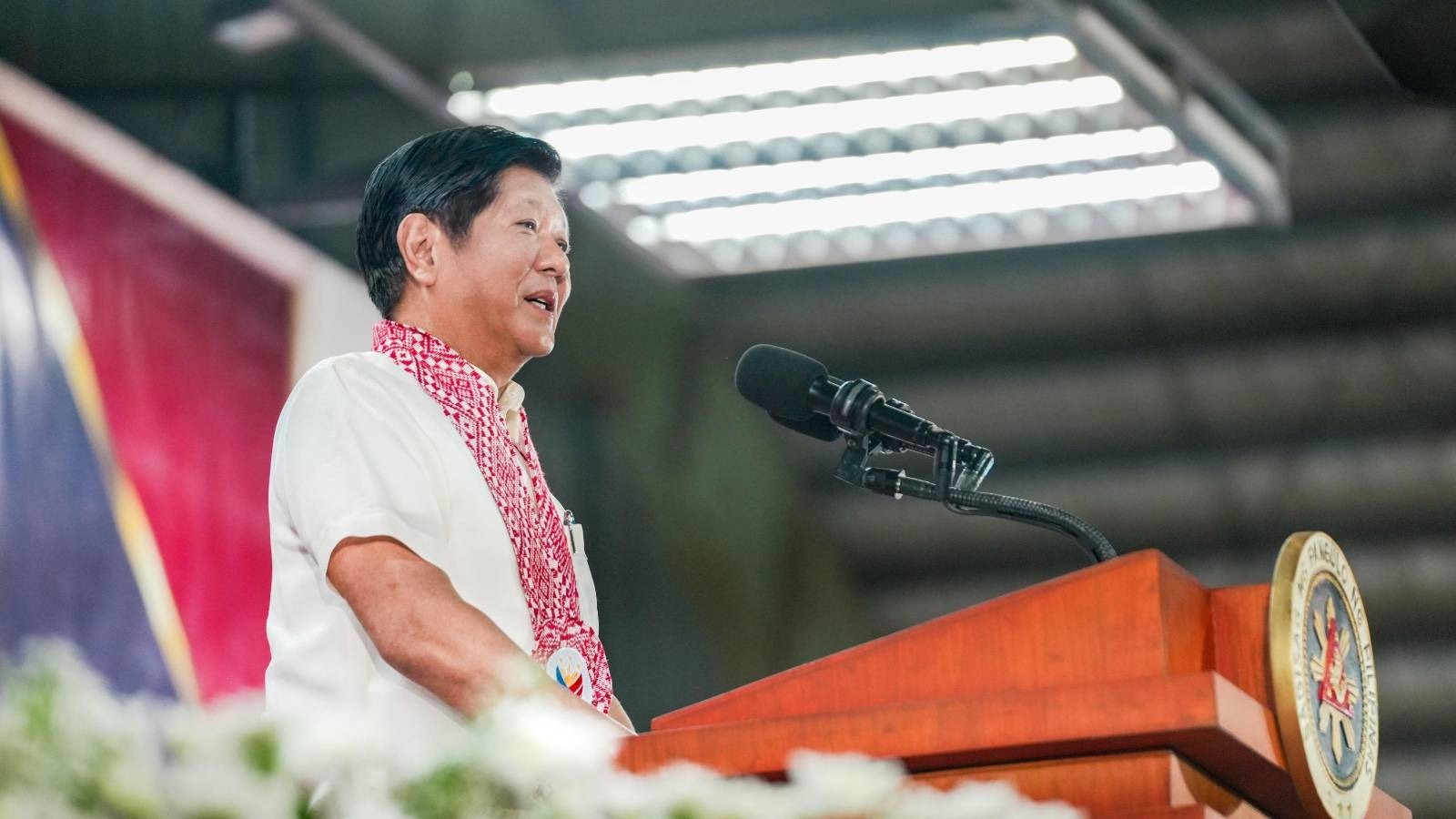MANILA -- The completion of the Implementing Rules and Regulations (IRR) of the New Agrarian Emancipation Act (NAEA) is the best birthday gift he could ever receive, President Ferdinand R. Marcos Jr. remarked on Tuesday.
The agrarian reform department presented to President Marcos the IRR of the NAEA, or Republic Act No. 11953, after signing the two-year extension of another executive order (EO) imposing a moratorium on amortization payments by farmer beneficiaries on agrarian debt.
“Magpapasalamat ako sa inyong lahat, lalong-lalo na sa mga staff at sa mga empleyado ng Department of Agrarian Reform. Alam ko hindi naman nangyari ito – hindi nangyari ito kung hindi sa inyong sipag at karunungan na maibuo itong IRR na ito,” Marcos said during IRR launching and signing of the moratorium extension at the Department of Agrarian Reform in Quezon City.
“At ako’y nagpapasalamat sa inyong lahat, sa lahat ng kasama natin upang mabuo natin ang IRR ng New Emancipation Law. On a personal note, nagpapasalamat ako – ito na yata ang pinakamagandang birthday gift na natanggap ko sa buong buhay ko.” said the President who will celebrate his 66th birthday on Wednesday, September 13.
The President signed the EO for the two-year extension of EO No. 4, s. 2023, which provides for a one-year moratorium on the payment of the principal obligation and interest on amortization payable by the agrarian reform beneficiaries (ARBs), to include even those who were not covered by the NAEA.
EO No. 4 is set to expire on September 13.
The ARBs need continuous economic relief due to the disruptive effects of the pandemic, climate change, and ongoing crisis in Ukraine. The extension of EO 4 aims to include ARBs not covered by the NAEA, which only covers those who have been indebted to the government as the law took effect last July.
Asked by reporters in an interview how the extension of the Agrarian Debt Moratorium enhances the capabilities of farmer beneficiaries, Marcos said, “Right now, hindi sila nasama doon sa condonation, kaya’t ang ginawa — dahil nandoon sila pagkatapos ng expiration ng — may cutoff date para doon sa moratorium, hindi na nila naihabol bago dumating itong IRR kaya’t nasa gitna sila. Sila ang matutulungan doon sa extension ng moratorium ng EO No. 4.”
As for his birthday wish, Marcos said he wishes for a much improved agriculture sector and better weather for the benefit of Filipino farmers.
“Maging maayos na ang agrikultura at malaman na natin kung ano ba talaga ang weather. Wet season ba o dry season? Para naman matulungan natin ‘yung mga farmer natin. Iyon lamang naman ang aking panalangin pa rin hanggang ngayon,” he said.
During the event, Marcos also called on everyone to support and take part in the implementation of the NAEA through a whole-of-nation approach which is vital to achieve its goals and ensure food security.
He urged the DAR, along with other concerned agencies, to strive for a smooth and immediate execution of the IRR to free the beneficiaries from the burden of debts and reap the benefits from the lands that they cultivate.
“Continue to facilitate the delivery of support services to all ARBs and make them your foremost priority in all our development efforts,” Marcos said in his speech.
“I call upon the beneficiaries to utilize your lands not only to cater to your families, but also for the rest of the nation.”
The President signed RA 11953 last July, which condones all unpaid amortizations, including the principal debt, interests, and surcharges of agrarian reform beneficiaries (ARBs) for awarded lands under various agrarian reform laws.
The law covers P57.56 billion in principal debt and interest, penalties, and surcharges of 610,054 ARBs tilling more than 1.17 million hectares of agrarian reform lands.
All cases involving the disqualification of ARBs or forfeiture of agrarian reform awards due to non-payment shall will be dismissed, reinstating any cancelled emancipation patent, certificate of land ownership award, or titles to the beneficiaries.
The law also enjoins the DAR to continue providing support services to all ARBs, such as the provision of extension services, credit and financing, and rural infrastructure. (PND)



